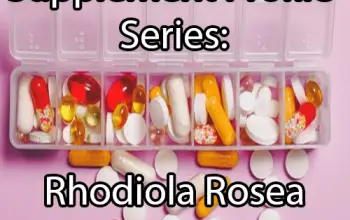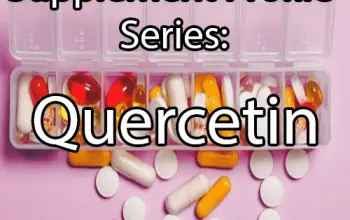What is NAC?

NAC is sold as a dietary supplement, often marketed for it’s role in aiding brain and liver health.
it’s also discussed as being a great antioxidant booster.
This is because of NAC’s role as a precursor to the amino acid “Cysteine”
Cysteine can be converted into an antioxidant substance called “Glutathione.” (also referred to as GSH.)
NAC’s ability to replenish Glutathione is so impressive that it is one of the most prevalent antioxidant drugs in clinical studies.
These studies range from hepatotoxicity induced by alcoholism[1] Paracetamol (Tylenol) overdoses[3] and even in neurological disorders like schizophrenia [4] [7].
NAC has certainly cemented its place in scientific literature.
Why is NAC suddenly so popular?
This is largely due to the FDA cracking down on supplements containing NAC and Amazon pulling those products from their stores.
NAC has been around for DECADES, although it seems to have become a pressing issue around the time of the Covid-19 Pandemic.
Companies had been making a myriad of health claims about their products containing NAC and this did
The FDA has released a statement saying that due to NAC’s approval as a drug in the 1960’s that it’s not legal to market it as a supplement.
(NAC is actually recognized by the WHO as the gold standard remedy to Paracetamol overdose.)
This has stirred quite the uproar as people have been regularly buying NAC supplements years.
However; NAC is also notable in part due to the complicated mechanism by which it works.
How does NAC work?

We know that NAC is:
- Antioxidative [1] [12]
- Cytoprotective (protects our cells from damage) [1] [12]
- A potent detoxifier [1] [12]
But HOW this occurs is under HEAVY scrutiny and debate.[1] [8][9][10] [11] [12]
Previously it was thought that the effects of NAC were able to increase GSH in the body through a lot of conversion factors and enzymatic reactions.
This is due to NAC’s ability to provide Cysteine, a rate-limiting step for glutathione production.
(As shown in this study showing elevation of glutathione in subjects taking nac) [13]
Although, it is argued that unless there is a deficiency of GSH present that the pathway in which the Cysteine provided by NAC further breaks down into GSH may not be functional.
Meaning that NAC may not be beneficial for raising GSH levels in normal healthy people. It is speculated that it is due to the negative feedback loops that cause the prevention of producing the excess GSH.[8][11]
So, if it’s not the production of elevated GSH, what is causing these benefits?
It has been postulated that one of the byproducts of NAC metabolism sulfane sulfur, which protects against oxidation and cytoprotection is the culprit. [1] [2]
This is due to the ability of sulfane sulfur to protect against the damage that could be caused by electrophiles, (chemical pairs that accept electrons) heavy metals, and other forms of oxidation. [9]
Why do people supplement with NAC?
Because NAC can be INCREDIBLY beneficial for liver health. [14]
In fact, if it wasn’t for that bit of info, I would have never heard of NAC years ago.
I have familiarity with NAC due to my interest in bodybuilding.
This is because bodybuilders that take oral steroids often have liver issues.
On paper and anecdotally, NAC is a decent way to at least partially remedy the damage that 17-alpha alkylated steroids have on the liver.[15].
(If you’re prescribed oral androgenic anabolic steroids, they could really do a number on your kidneys and liver. It may be of interest to get your blood work checked at least semi-annually.)
Alongside of this, it’s used to help replenish glutathione stores, like we’d mentioned earlier.
and for people looking for great anti-inflammatories, this takes the cake.
Why don’t we just use L-cysteine instead?
Perfect question! I asked this myself because after about twenty or so studies I thought:
“Well, why not just go straight to the source if I want the benefits outlined by cysteine converting into GSH?
What makes it so much better than Cysteine??
Is there something in the de-acetylation process that makes it THAT much better? ”
Although I’ve also learned that directly supplementing with the source ingredient isn’t always the best option.
(see my post on L-Citrulline here or the study below)
( L-citrulline is more beneficial for raising serum arginine levels than arginine itself.)5
NAC was originally preferred over Cysteine because it was thought to have been less likely to be oxidized, meaning it would be more shelf-stable. (As well as less offensive in both taste and odor.)
Asides from just a perspective of being more agreeable to consume, prepare, and transport it was noted to be MUCH safer.[4]
You can go online and read studies that administer HIGH doses of NAC practically anywhere.[12]
However, Cysteine has NOT ever been administered at supraphysiological doses in studies.
This is because Cysteine shows signs of toxicity at just a 5g ingestion orally.[1][2]
While it is speculative as to why Cysteine causes these issues there is a theory.
It’s postulated that since NAC needs to be de-acetylated there is a limit on how much Cysteine can be produced at once.
This means that exposure to toxic by-products can potentially be limited.[1] [2]
The decreased amount of exposure to Cysteine is theorized to also prevent excitotoxicity as well.
This makes NAC the preferable option for utilizing in clinical applications.
What dosage of NAC is commonly taken?

Earlier I mentioned that NAC can be taken at a reasonably high dose without cause for much concern. (asides from things like nausea or general stomach discomfort from overuse.)
But what is a dose that some people would use NAC for in regards to things like liver health or general anti-oxidant qualities?
Typically NAC by itself is available in 500mg-1000mg tablets.
Bulk powdered forms used to be readily available in supplement websites online as well.
Now it’s harder to find than ever, (including the online marketplace.)
Alternatively, You can purchase NAC on Amazon at this link
Some “Liver Support” supplements still on the market contain anywhere from 100-350mg of NAC while also including other ingredients.
In The Context of “Liver support”
NAC is taken at around 1000mg 3x a day for around two weeks.
Anecdotally, I’ve taken NAC following that dosage guideline for liver support and have been perfectly fine.
Full disclosure I do take a wide variety of supplements for performance enhancement.
This may have affected my outcome more than just taking NAC, but I’d still like to share my experience with it.
One of the references mentions treating people with a MUCH higher dose (100mg/kg of body weight).
This means that even a 100lb person would be receiving around 4.5g. [14]
In General, NAC is taken once daily at 1000mg for it’s anti-oxidant properties.
(You can split your dosing into 900mg of NAC taken 3x per day if you cannot get bulk powder of NAC)
NAC and Covid-19 Claims
The study that mentions using 1200mg (600mg twice a day) should be taken with HEAVY skepticism.
The author notes that proper studies and testing are still needed to give a clear and definitive answer.
The study referenced is being tested on people that are already being hospitalized and cared for, not a healthy general public that has positive covid-19 results.
People claiming that NAC can “cure covid” and cite random studies like these are not properly interpreting these results. [16] [17]
They are relying heavily on speculation and theory as opposed to proven results through medical research.
NAC: In summary
NAC has some incredibly promising effects on liver health and generally for well-being.
Alongside this, it also carries some profound effects on detoxifying substances and working as a potent antioxidant.
There might be contentions on HOW exactly it works, but at the end of the day, the average joe taking this supplement to be healthier won’t really care. The most important aspects are the results to them.
Although the likelihood to remain in dietary supplements in the US seems unlikely, the case could be made that it can stay.
Have you personally been impacted by the lack of NAC availability?
Let me know in the comments below on this post.
Also, feel free to share questions you have or experiences you’ve had with it!
Citations:
- 1The mechanism of action of N-acetylcysteine (NAC): The emerging role of H2S and sulfane sulfur species
- 2 N-Acetyl Cysteine Functions as a Fast-Acting Antioxidant by Triggering Intracellular H2S and Sulfane Sulfur Production
- 3 A Review on Various Uses of N-Acetyl Cysteine
- 4 Getting a Knack for NAC
- 5 Supplemental Citrulline Is More Efficient Than Arginine in Increasing Systemic Arginine Availability in Mice
- 6 Medical and Dietary Uses of N-Acetylcysteine
- 7 Glutamatergic substrates of drug addiction and alcoholism
- 8 REGULATION OF GLUTATHIONE SYNTHESIS
- 9https://www.cell.com/cell-chemical-biology/fulltext/S2451-9456(18)30115-6?_returnURL=https%3A%2F%2Flinkinghub.elsevier.com%2Fretrieve%2Fpii%2FS2451945618301156%3Fshowall%3Dtrue
- 10 S Marks the Spot: Linking the Antioxidant Activity of N-Acetyl Cysteine to H2S and Sulfane Sulfur Species
- 11 https://www.sciencedirect.com/science/article/abs/pii/S0891584918311055?via%3Dihub
- 12 A Review on Various Uses of N-Acetyl Cysteine
- 13. Pharmacokinetic and Pharmacodynamic Studies of N-Acetylcysteine, a Potential Chemopreventive Agent during a Phase I Trial”
- 14. The effect of N-acetyl-l-cysteine (NAC) on liver toxicity and clinical outcome after hematopoietic stem cell transplantation
- 15. Toxic effects of anabolic-androgenic steroids in primary rat hepatic cell cultures
- 16. https://pubmed.ncbi.nlm.nih.gov/32780893/
- 17. https://pubmed.ncbi.nlm.nih.gov/34182881/






Hiya, I’m really glad I have found this information. Today bloggers publish only about gossips and web and this is actually irritating. A good web site with interesting content, this is what I need. Thanks for keeping this web-site, I’ll be visiting it. Do you do newsletters? Cant find it.
Heya! Thanks a ton for this!
It’s incredibly heartwarming to hear 🙂
I Don’t, but now that you mention it, I’d be more than happy to curate some news letters and send out some information by weekly!
If you have any preference for information you’d like to see, let me know!
otherwise I think it’d be largely just information people could find to be useful in their day-to day lives.